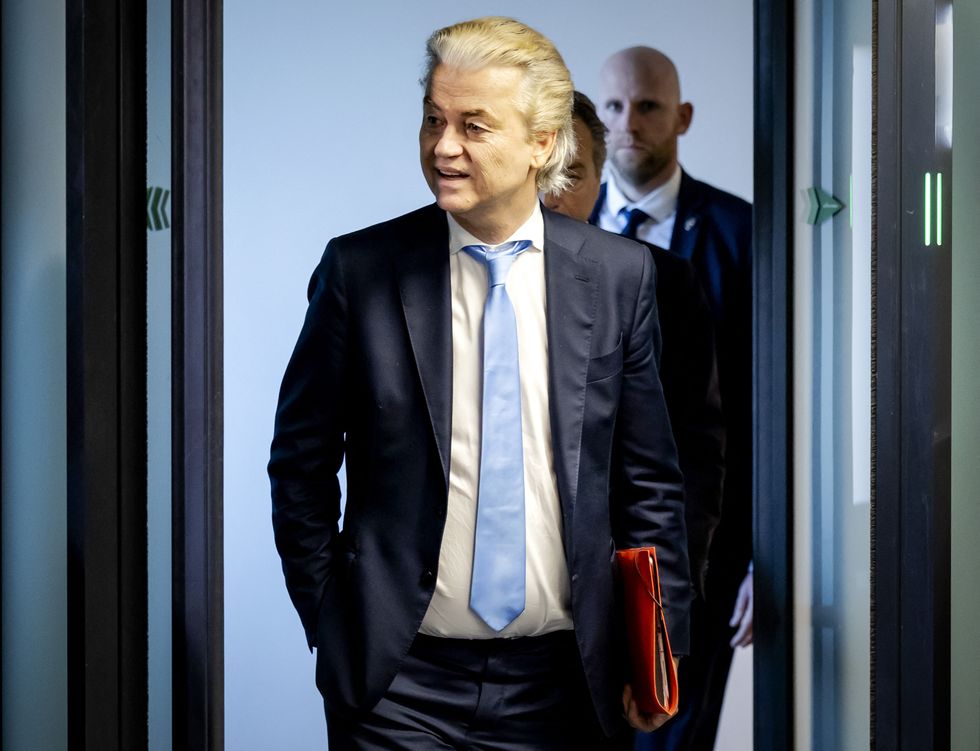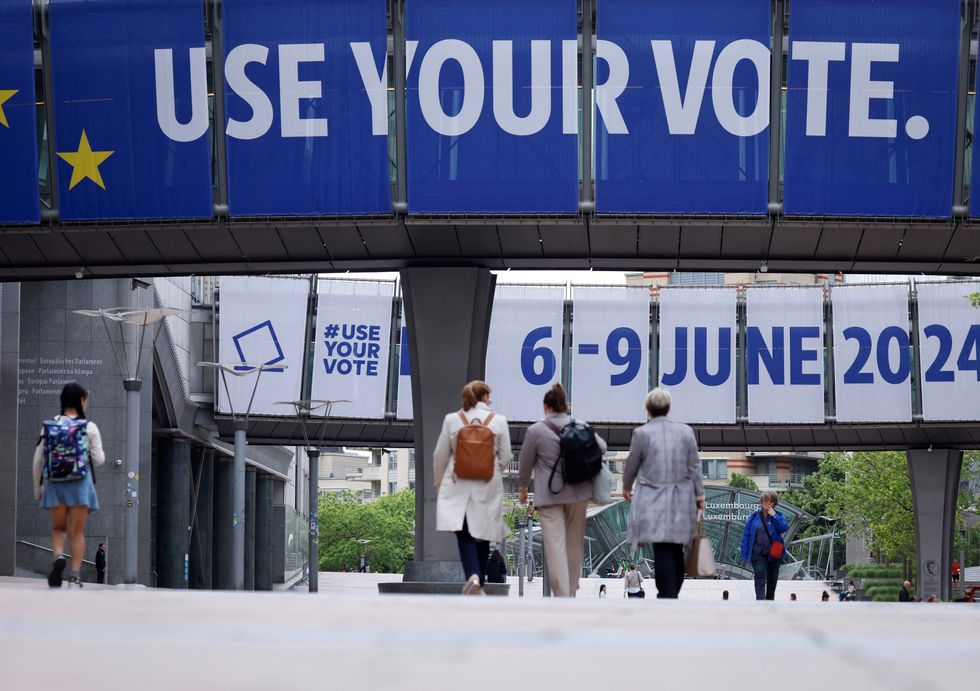Far-right political parties are set to make significant gains ahead of next month’s European Parliament election.
From June 6 to 9, over 400 million Europeans will head to the polls to cast their vote for the next 720 members of European Parliament.
In the past, the parliament has been led by a majority of centrist parties, but this year the balance of power is likely to be tipped with gains from populist and nationalist parties.
Six EU countries already have hard-right parties in government including Italy, Finland, Slovakia, Hungary, Croatia and the Czech Republic.
Marine Le Pen, President of the National Rally group is polling second head to head with the Social Democrats
Getty
Meanwhile, populist parties across Europe are dominating the polls.
In France, far-right leader Marine Le Pen’s National Rally party is flying high in the polls at over 30 per cent, overtaking President Emmanuel Macron’s Renaissance party, according to polls.
Next door the far-right Alternative for Germany party, who are officially suspected of extremism, is polling second, head-to-head with the Social Democrats.
At the end of last year, the dramatic victory of the anti-Islam populist leader Geert Wilders in the Dutch general election sent shockwaves across Europe.

At the end of last year, the anti-Islam populist leader Geert Wilders won the Dutch general election
Getty
A hard-right party is defined as a “member of the two pan-European umbrella parties on the furthest right of the political spectrum,” according to Politico research.
Other key EU member states including Poland, Latvia, Estonia and Belgium have far-right parties in first or second place in the polls.
The European Parliament decides EU laws and budgets and is made up of MEPs elected by each member state who come together to form European party groups.

In June over 400 million Europeans will head to the polls to vote for the next 720 members of European Parliament
Getty
The sharp right turn is likely to have consequences for European-level policies, particularly on environmental issues as far-right groups stand to oppose EU action to tackle climate change.
There has been a broader shift to the right in Europe due to economic, social, cultural and political issues.
LATEST DEVELOPMENTS:

The war in Ukraine, immigration and the economy are driving factors for the push to the right in Europe
Getty
Analysts say that the main reasons vary country by country but immigration, the economy and the war in Ukraine are driving factors.
The European Council on Foreign Relations (ECFR) said in a report: “This reflects the long-term decline in support for mainstream parties and the growing support for extremist and smaller parties across Europe, which is resulting in an increasing fragmentation of European party systems, at both the national and European levels.
“In short, we expect that populist voices, particularly on the radical right, are likely to be louder after the 2024 elections than at any point since the European Parliament was first directly elected in 1979.”
According to the ECFR, almost half the seats will be held by MEPs outside of the “super grand coalition” – made up of the European People’s Party, the Socialists and Democrats and Renew Europe- after the 2024 European Parliament elections.

